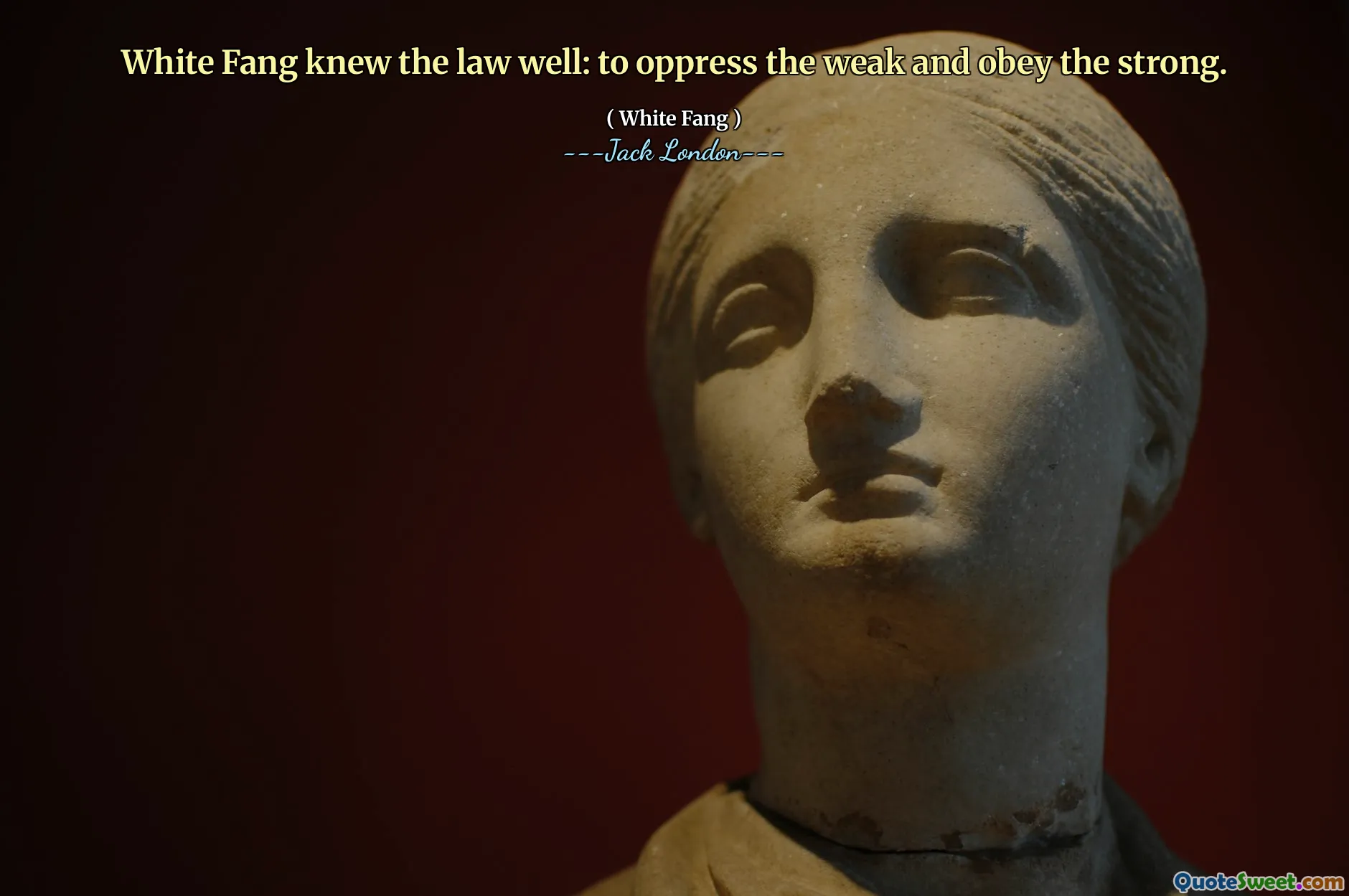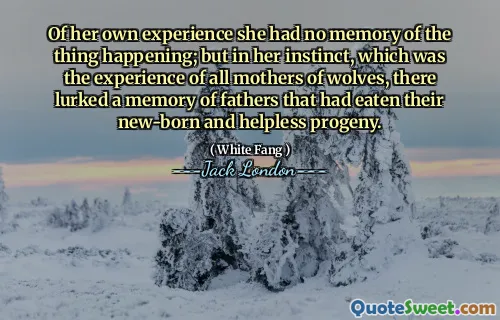
White Fang knew the law well: to oppress the weak and obey the strong.
This quote from Jack London's White Fang crystallizes the harsh realities of nature and society as perceived through the experiences of the titular character. It encapsulates a grim but realistic worldview where power dynamics govern behavior and survival. The law to "oppress the weak and obey the strong" reflects a primal survival strategy rather than a moral code — a lens through which White Fang understands the world around him. This perspective invites readers to reflect on the often brutal, hierarchical nature of existence, both in the animal kingdom and in human society. It challenges us to consider the ways in which strength, dominance, and submission shape interactions and relationships. Yet, it also raises ethical questions about justice, compassion, and the rules that govern civilized behavior. Jack London, through White Fang, confronts us with the raw, unapologetic truths of life or death struggles, making us ponder the thin line between natural instinct and societal constructs. This insight provokes a contemplation of power: its uses, abuses, and the costs endured by both oppressors and the oppressed. Readers might find themselves questioning their own perceptions of strength and weakness, authority and submission, and the underlying principles that dictate their conduct and engagement with others.







